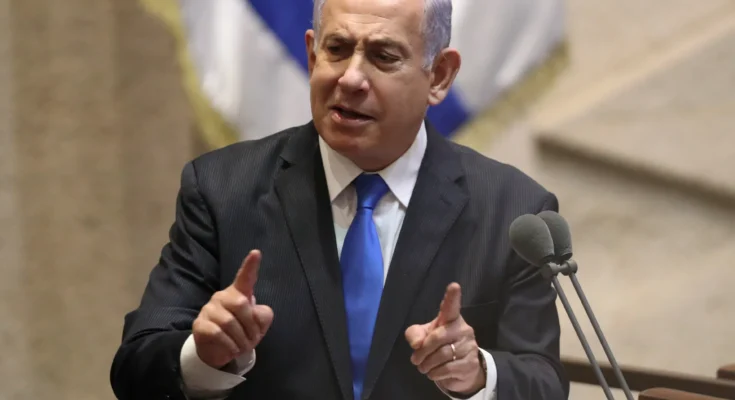In a move that could dramatically escalate the Israel–Hamas conflict, Prime Minister Benjamin Netanyahu’s security cabinet has approved plans for a full military takeover of Gaza City. The decision has been met with sharp condemnation from global leaders, humanitarian organizations, and even some members of Israel’s political establishment.
Netanyahu insists Israel does not intend to govern Gaza long-term, but the announcement raises pressing questions:
-
Who will govern the territory after Israel takes control?
-
How will this affect civilians already facing dire humanitarian conditions?
-
Could this push the region further from a political resolution?
The Plan: Key Objectives
According to Israeli officials, the operation’s primary aims are:
-
Eliminate Hamas’ operational capabilities in Gaza City
-
Retrieve Israeli hostages held in the enclave
-
Establish a secure perimeter to prevent future attacks
-
Transfer governance to a “non-Hamas civilian administration” at a later stage
Netanyahu stated:
“We will dismantle the terrorist infrastructure in Gaza City, ensure our citizens’ safety, and look for regional partners to manage civilian life.”
The Humanitarian Context
Gaza’s Crisis Deepens
Even before this announcement, Gaza faced:
-
Massive displacement — over 80% of the population uprooted
-
Critical shortages of food, water, and medical supplies
-
Hospitals operating at less than 40% capacity
-
Rising child malnutrition rates
Humanitarian groups warn that any military takeover without immediate aid provision could lead to mass casualties from hunger and disease.
International Reaction: A Wave of Criticism
United Nations
UN Secretary-General António Guterres warned:
“This move risks triggering a humanitarian catastrophe beyond anything we’ve yet seen in Gaza.”
The UN is calling for an immediate ceasefire, humanitarian corridors, and international oversight.
Western Allies
-
EU, UK, and France urged Israel to reconsider, citing international law and civilian safety.
-
The U.S. expressed “deep concern,” urging Israel to clearly define an exit strategy and prioritize civilian protection.
Arab States
Egypt, Jordan, and Saudi Arabia condemned the decision, reiterating that they will not assume governance responsibilities in Gaza without a broader political settlement.
Domestic Debate Inside Israel
While many Israelis support the aim of removing Hamas from power, critics say the plan:
-
Risks dragging Israel into a long-term occupation
-
Lacks a clear governance blueprint
-
Could inflame tensions with allies and undermine Israel’s global standing
Opposition leader Yair Lapid warned:
“Without a credible plan for the day after, we are inviting more chaos, not security.”
Possible Governance Scenarios After Takeover
-
Palestinian Authority Control
-
Pros: Recognized internationally, could restore some stability
-
Cons: Weak in Gaza, low public trust among Palestinians
-
-
Arab Peacekeeping Force
-
Pros: Regional legitimacy
-
Cons: No Arab state has volunteered
-
-
UN Mandate
-
Pros: Neutral oversight
-
Cons: Requires Security Council approval—Russia or China may veto
-
-
Joint International–Arab Administration
-
Pros: Shared responsibility
-
Cons: Complex to organize and sustain
-
Security vs. Sovereignty
From Israel’s perspective, security is non-negotiable after years of rocket attacks and cross-border raids. However, for Palestinians, the loss of control over Gaza’s largest city represents another blow to sovereignty, especially if governance remains undefined for months or years.
Potential Consequences
-
Humanitarian collapse: Without immediate aid access, living conditions could become uninhabitable.
-
Diplomatic isolation: Even close allies may distance themselves if civilian casualties surge.
-
Radicalization risk: Power vacuums often fuel extremism, potentially birthing new militant groups.
The Broader Geopolitical Picture
This development comes amid:
-
Ongoing U.S.–Russia–Ukraine negotiations over a potential truce
-
Trump’s new tariffs straining U.S.–India defense ties
-
Rising tensions in the Middle East, including Iranian posturing in the Gulf
Gaza’s fate could influence regional alliances and international aid priorities in the months ahead.
Conclusion
Netanyahu’s decision to seize Gaza City militarily is a bold gamble—one that could either dismantle Hamas’ power base or plunge the region into deeper instability. Without a clear, credible plan for governance and humanitarian relief, the risk of worsening Gaza’s crisis is high.
The coming weeks will test whether this move leads to security and stability—or becomes another chapter in a seemingly endless cycle of conflict.
FAQs
Q1: Does this mean Israel will occupy Gaza?
Netanyahu says no, but military control without governance can function as de facto occupation.
Q2: Who might govern Gaza after Israel takes control?
Possibilities include the Palestinian Authority, Arab peacekeepers, or a UN mandate, though none are confirmed.
Q3: How has the world responded?
Global reaction has been overwhelmingly critical, with calls for restraint and humanitarian action.
Q4: What’s the immediate risk for civilians?
Shortages of essential goods could worsen rapidly, leading to a humanitarian catastrophe.




